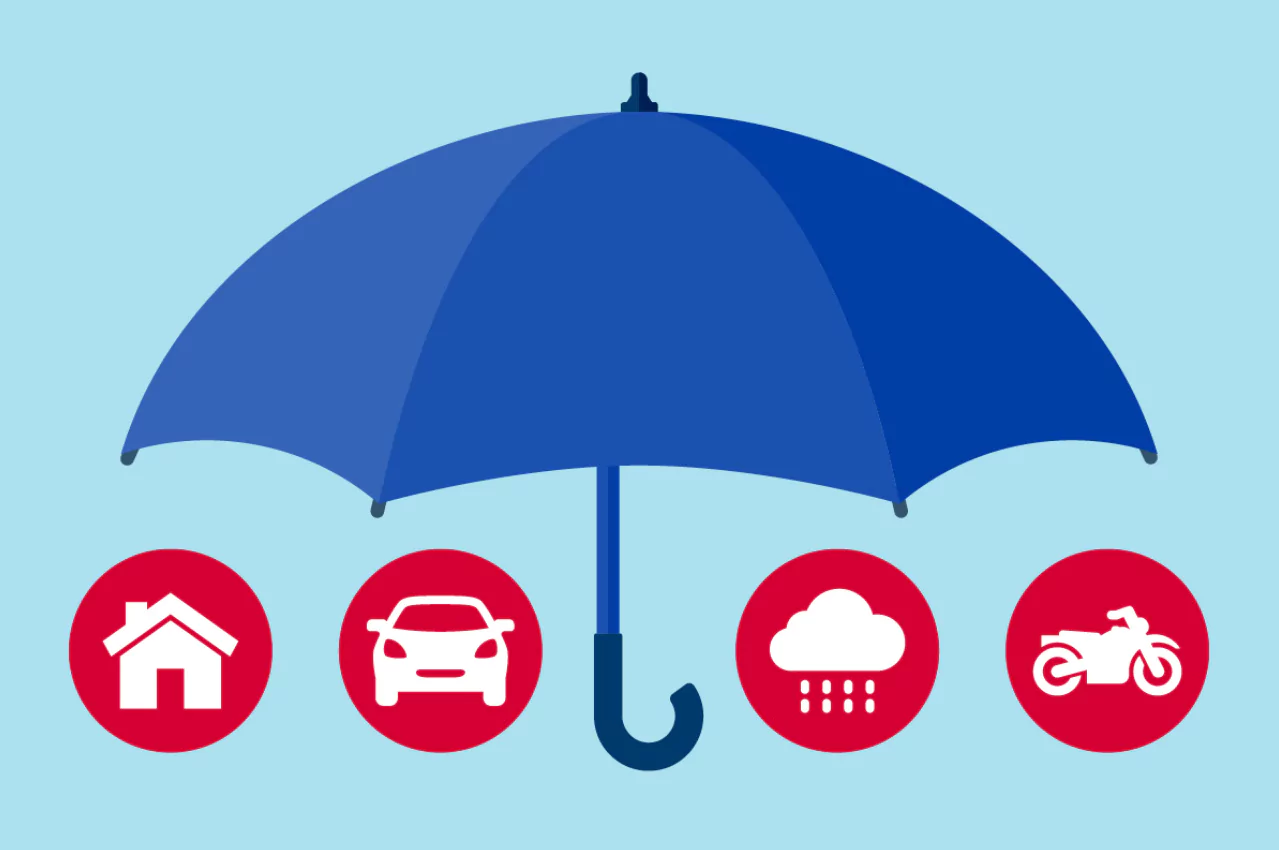
What is an umbrella insurance policy?
Umbrella insurance, sometimes referred to as personal umbrella policy, is a supplemental liability policy that can help protect your assets when there is an unexpected event that requires more coverage than you have with your vehicle or property policies. An umbrella policy provides an additional layer of coverage on top of what you already have.
Do you need umbrella insurance?
Umbrella insurance can give you $1 million in coverage on top of your auto or homeowners policy limits. If you injure someone or damage their property, you might not have enough coverage with your existing policies. An umbrella policy could save you from paying out of your own pocket.
How does umbrella insurance work with your other policies?
Umbrella insurance can kick in after you've reached the limits on your other policies. Imagine that you injure another driver in a car accident. He sues you for $500,000, but your auto policy only covers up to $300,000. An umbrella policy could cover the additional $200,000—and help save you from financial hardship.
Umbrella Insurance FAQs
The answer is probably yes. But sometimes it's easier if you can see for yourself. So, take just a moment to ask yourself these 3 basic questions:
- Do I own a home?
- Whether I rent or own my home, do I own any other significant assets?
- Have I built an investment portfolio or retirement savings account?
If you answered "yes" to any of these questions, then it is important that you protect these assets in case of an accident or lawsuit. So, ask yourself one more question. Are your assets already adequately protected?
To do quick calculation:
- Add up your assets: Home, money in the bank, stocks, bonds, available funds from a 401(k) or other retirement plans, etc.
- Add up your liability coverage: Homeowners, auto, etc.
If your liability coverage is less than your assets, you may not have enough protection. That's where an umbrella policy can help. Get a free umbrella insurance quote today and make sure you have the coverage you need.
If your assets have grown, but your coverage remained the same you may need to think about raising your limits.
In general, you should gather info about you and everyone in your household. This will include:
- Vehicle(s) that are owned, if you already have liability coverage for them, and what the coverage amount is. Vehicles covered could include motorcycles, golf carts, RVs, and watercrafts.
- Has any driver in your household had a traffic conviction within the last 5 years?
- Are you and/or your spouse the sole owners of all vehicles?
- Any other insurance policies (example, homeowners, renters, etc.) and what your liability limits are.
- If you own any additional properties and information about the homeowner or landlord policies on those homes.
- Your occupation (including whether you hold a public office).
- Another umbrella insurance.
- Liability claims.
- Civil or criminal charges.
You'll also be required to maintain minimum limits on your other insurance products to qualify for an umbrella policy.
Yes! Not sure if you would benefit from purchasing umbrella insurance? Consider these factors:
- Vacant land. Could your vacant land be used by neighborhood children to play a game of ball? If one is injured it could result in a costly lawsuit. Umbrella insurance can provide additional coverage.
- Rentals. Even though you carry an independent fire policy for each home, an umbrella policy can help protect against major lawsuits should a tenant-or tenant guest-be injured on a rental property.
In most cases you'll want to consider getting an umbrella insurance policy to increase your protection in the case of an accident or lawsuit.
- Injuries you cause to others
- Damage you cause to other people's property
- Injuries or damage caused by your renters
- Certain lawsuits, like slander and defamation
- Without an umbrella policy, your home and savings could be at risk if you're involved in a major accident or lawsuit.
- Liability claims are often expensive and paying out-of-pocket for one could take years.
- Lawsuits can happen to anyone. You can be sued regardless of your financial situation or whether you believe you are at fault.
- An umbrella policy can add $1 million** in coverage to several policies or where raising limits is not an option—and may cost less than raising limits individually.
- May cover situations that your other policies may not, such as slander, or libel lawsuits.
- Can cover the cost of your legal defense in case of a liability lawsuit.
Our Services

How Can We Help
We are always available to cater to your insurance needs.









